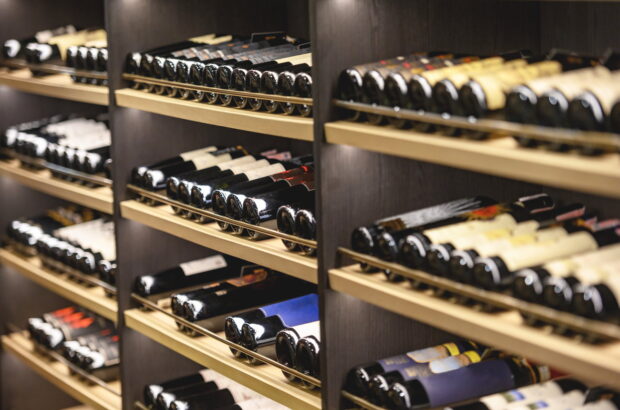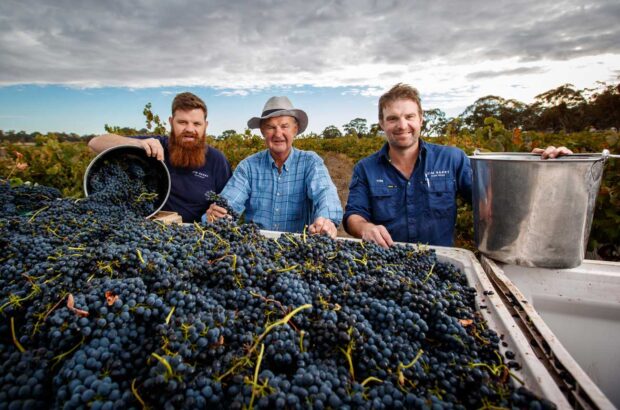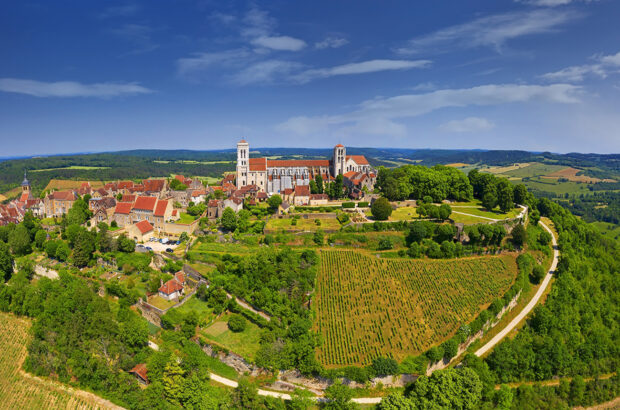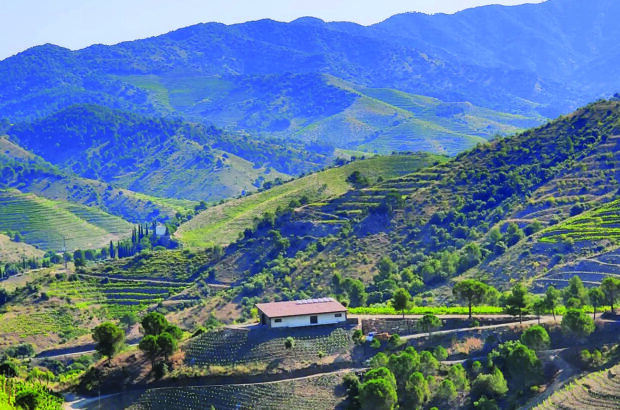When she graduated as Argentina’s first female oenologist, Susana Balbo set the tone for the trailblazing career that followed. The last four decades have witnessed her propel the industry forward as a three-times president of Wines of Argentina, consult for the biggest names in the business, and build her own eponymous bodega. One of the country’s most respected winemakers, she says: ‘I’m the architect of my own life.’
Winemaking hasn’t been her only focus. In 2015, Balbo neatly sidestepped into politics, tackling territory far removed from barrel tasting at her winery in Agrelo, Mendoza. Today, however, she presides over her family-run bodega, which celebrated its 20th anniversary last December, the inspiration that guides Argentina’s undisputed first lady of wine and ‘Queen of Torrontés’.
The daughter of linen manufacturers from Córdoba who made their home in Guaymallén, wine wasn’t part of Balbo’s world despite growing up in Greater Mendoza. ‘My parents were modest people who sold embroidered tablecloths door to door. It wasn’t until the 1980s, as I was graduating, that they bought a vineyard for my brother as he didn’t want to follow in their footsteps.’
Susana Balbo at a glance
Born Mendoza, 1956
Education Universidad Don Bosco, Mendoza
Career Graduated as Argentina’s first woman oenologist in 1981; three-times Wines of Argentina president; national deputy for Mendoza province; W20 Argentina chair; president of Susana Balbo Wines
Family Children José, 35, and Ana, 33; three grandchildren
Other interests Keen horsewoman and gardener who loves reading and playing with her grandchildren, and practises yoga
Starting out
Undertaking an oenology degree was a process of elimination for the bright 17-year-old, given that Argentina was on the brink of a dictatorship. ‘I wanted to study nuclear physics in Patagonia, but because the social situation was unstable, my parents wouldn’t let me move there – or to San Juan to study chemistry – so I went for oenology.’
The first woman in Argentina ever to graduate in oenology – and at the top of her class – in 1981, she fast encountered hurdles trying to enter the profession. ‘I learned a huge amount as a laboratory head but loved being in the bodega. I wanted to make wine, but as a woman I was only offered lab jobs in Mendoza.’
Following six months of rejections, she then applied for an oenology position requiring three years’ experience and the ability to speak English at Michel Torino in Cafayate; the talented 23-year-old was hired over 86 others. Balbo says: ‘It was a stroke of luck, because I had a great academic record, but certainly couldn’t speak a word of English.’
Filled with youthful enthusiasm, she set off on the 870-mile, one-way journey. ‘Cafayate was a tiny village with a bar, a church – and nothing else. A diesel tank supplied electricity and was switched off at 10pm; phoning Mendoza via an operator took eight hours. It was very basic,’ she says.
Nine years in Cafayate naturally left their mark: on a personal level, she met and married José Lovaglio Saravia and gave birth to her children José and Ana. Professionally, she threw herself into giving Torrontés a serious identity, overhauling it from table wine to a premium product.
‘I was a multi-tasking mum, working 16-hour days. Ana would sleep in a tiny buggy and José in a llama wool blanket; they were always with me,’ she says. ‘Michel Torino was a great learning curve; the days flew by as I was involved in everything, including rebuilding the adobe winery,’ she adds. ‘Torrontés was usually sold in demijohns, but the owner wanted to make high-quality wine and export it. I learned to love it and applied my creativity to make a wine with an international profile. My colleagues called it feminine and not like Torrontés, but it was Cafayate’s first export and served on [former US airline] Pan Am’s first-class menu – a sign that this was the right path.’

Susana with Ana and José. Credit: Sara Matthews
Back to her roots
When she returned to Mendoza a decade later, it wasn’t in the blaze of glory one might expect. After Michel Torino was sold, Balbo was owed a year’s salary. Disputes with her brother over the family vineyard led to her walking out – ‘he didn’t respect me as an oenologist’ – then she and José were swindled on a project. ‘We lost almost everything.’
Owning a winery remained a pipe dream, and to stay afloat Balbo began consulting. In characteristic trendsetting style, she was the first Argentinian oenologist to be contracted abroad, working 10 European harvests before becoming a permanent fixture at Catena Zapata, overseeing construction of its pyramid bodega and as exports director; second husband Pedro Marchevsky was general manager. In 1999, she and Marchevsky founded Dominio del Plata together, but their oenological visions clashed – she plumped for quality over quantity, while he wanted to make easy-drinkers.
Going solo ‘By 1999, I really wanted to start my own project so I rented an old winery. Two years later, I bought 22ha in Agrelo due to my desire to make quality wine, plus it was considered the best zone for Cabernet Sauvignon, my favourite red; it was also a hub for prestigious winemakers’ projects. I had the chance to build in El Peral, but it was too far away because I had to do the school run. Agrelo was just nine miles from home and made for a good central grape reception point,’ she says.
Leaving Catena in 2002, when Argentina was in full economic crisis, was a risky decision but, ever the entrepreneur, Balbo threw herself into producing small quantities of the fine wine she’d longed to produce, such as Signature and Nosotros, with Crios launching that same year, drawing on her ingenuity to make her dream a reality. Says daughter Ana: ‘She drew up the blueprints [for the winery] on our kitchen table herself, because there wasn’t enough money to hire an architect.’
Balbo adds: ‘I bought high-quality grapes and started selling 15,000 cases a year. Little by little, I started building – and that was the best thing that could happen. When you have an entrepreneurial spirit, it’s hard to stop.’ After she and Pedro divorced, Balbo acquired the financial backing to buy him out and, by 2012, Dominio del Plata was rebranded Susana Balbo Wines (SBW).
For six years, Balbo lived and breathed every moment at the red-roofed winery. ‘The platforms were close to my bedroom, so the pumps were my lullaby,’ she recalls. It wasn’t until UC Davis graduate José joined in 2011, followed by business administrator Ana a year later, that SBW welcomed the second generation into the fold. Balbo adds: ‘I never pressured them to do so, but it was a great source of pride when my children joined the company.’ Edgardo Del Popolo arrived as general manager in 2013, and today more than 100 people are employed across the winery, vineyards and restaurants.
‘It was initially hard to separate the roles of boss and mother, so I brought in Edy as a buffer. Family businesses aren’t always easy to run – and family is the most important thing to me – but working together is fantastic. We’re a team and everyone has their own project: José heads exports and manages the La Carrera vineyard, while Ana is head of marketing and brilliant at hospitality.’
Global stage
In 2006, Balbo was elected president of Wines of Argentina for the first of three terms, and she set about helping Argentina to make a name for itself. ‘A 2004 export market study showed we were the fifth-largest producer, yet sold 95% domestically. As we didn’t exist in foreign consumers’ minds, we could create a unique character on the world stage.
‘It was also essential to show buyers our riches and let them fall in love with our pure skies, crystal water and beautiful vineyards; and we invented Malbec World Day.’ It paid off: in 2019, exports were 26.5%, according to the Instituto Nacional de Vitivinicultura (INV).
Stepping aside from winemaking in 2015 to sit as a national deputy in the lower house of the Argentine National Congress for one term, Balbo also chaired Argentina’s W20 group focusing on female empowerment. ‘I got involved in politics to give something back to society and help create a better country so my grandchildren don’t feel they have to migrate for work. But I found it hard to make changes.’
A slew of honours have been bestowed upon her over the past few years, including the BRAVO Lifetime Achievement Award (honouring her work to propel Latin America onto a global stage), but gongs also embrace winery staff, she says. ‘A pat on the back is great and, though I’m the face, these achievements have a positive impact on everyone at SBW.’
After four decades making wine all over the world, Balbo’s philosophy today is simple: ‘My priority is to plant the appropriate variety in the appropriate place and make transparent, honest wines that express the place they’re from. Eighty percent of our grapes come from the Uco Valley: we have 36ha in Gualtallary, and long-standing relationships with producers in Vista Flores, Los Chacayes and Paraje Altamira, plus we’re converting all 57ha to be 100% organic.’
As for the next 20 years, the focus is sustainability and, ever the innovator, Balbo is bringing a new project to life. She says: ‘My mum is 89, so longevity is on my side. I’d certainly love to see one of my three grandchildren become involved at SBW. I hope to see Mendoza commit to organic vines and improving must quality, which means better supporting our producers. It’s also a concern that the domestic market with its [43%] inflation isn’t profitable.’ As for her latest project: ‘I’m building a boutique hotel in Chacras de Coria – it’s quite the investment, but it’s my way of moving forward.’











